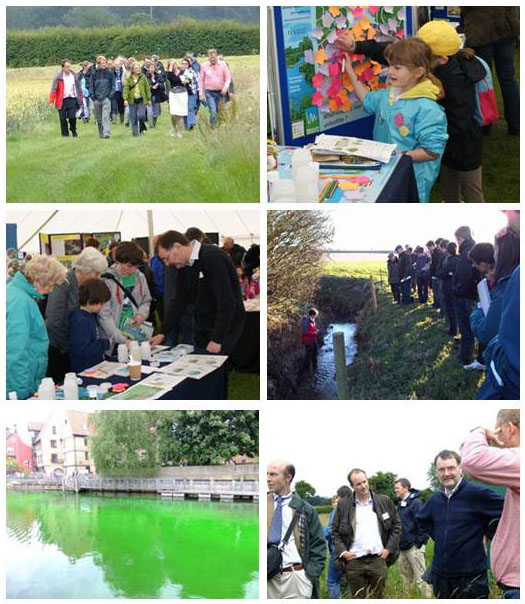Learning and knowledge exchange was a key feature throughout the project.
We had an enthusiastic two-way flow of understanding, with researchers learning from farmers and other practitioners, and findings from the research shared with these groups, policy-makers, the public, students, young learners and the wider research community.

The Wensum DTC team held or attended a wide range of events over the years, which you can read about by expanding the links below.

)